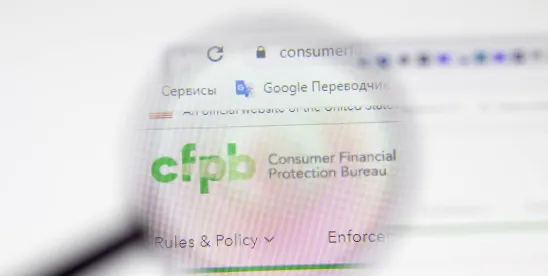On May 16, 2024, in a 7-2 opinion authored by Justice Clarence Thomas, the Supreme Court held that Congress’s funding mechanism for the Consumer Financial Protection Bureau (“CFPB” or “the Bureau”) does not violate the Constitution’s Appropriations Clause. CFPB v. Community Financial Services Assoc. of America, 601 U.S. 416 (2024). Congress created the CFPB in the wake of the 2008 financial crisis to unify the enforcement of 18 different consumer financial protection statutes. 12 U.S.C. § 5418(12). The Bureau is authorized to draw from the revenues of the Federal Reserve System “the amount determined by the [CFPB’s] Director to be reasonably necessary to carry out” its duties, subject only to a cap of twelve percent of the Federal Reserve System’s operating expenses. 12 U.S.C. § 5497(a). Two trade associations – Community Financial Services Association of America and Consumer Service Alliance of Texas – representing payday lenders long opposed to the payday lending regulations issued by the CFPB, unsuccessfully argued that the independent decision-making authority vested in the Bureau’s Director to requisition the funds the Bureau needs without an express year-to-year Congressional allocation of those funds violated the Appropriations Clause. The Supreme Court concluded that, because capped self-funding mechanisms – or “sum not exceeding” appropriations – such as this one were commonly passed in colonial state legislatures, the English Parliament, and the First Congress, the CFPB’s authorization to draw capped funds from the Federal Reserve System satisfied the Appropriations Clause.
Prior to the Supreme Court’s review, the Fifth Circuit had come to a different conclusion in this case. It agreed with the trade associations that the self-funding mechanism Congress created for the CFPB was unconstitutional, and, because those illegally authorized funds had been used to enforce the payday lending rule the associations challenged, the only remedy was to invalidate the rule. If the Supreme Court had agreed with that analysis, its decision would likely have invalidated not only the payday lending rule at issue in the case, but also the Bureau’s many consumer protection regulations promulgated under other laws such as the Truth in Lending Act, 15 U.S.C. §§ 1601 et seq. (“TILA”), 12 C.F.R. §§ 1026.1 et seq. (Regulation Z), the Electronic Funds Transfer Act, 15 U.S.C. §§ 1693 et seq. (“EFTA”), 12 C.F.R. §§ 1005.1 et. seq. (Regulation E), and the Equal Credit Opportunity Act, 15 U.S.C. § 1691 (“ECOA”), 12 C.F.R. §§ 1002.1 et seq. (Regulation B), among others.
Employees working in consumer lending frequently apply CFPB-issued regulations. Accordingly, when these employees report illegal activity or noncompliance to their supervisors, they typically refer to the requirements enumerated in the CFPB’s regulations, which are more detailed than the underlying statutes. For example, while Regulation Z requires creditors to correct all billing errors uncovered while investigating a billing error reported by a borrower, even if the complained-of error did not occur, the text of TILA itself does not include such an express requirement. Compare 12 C.F.R. § 1026.13(f)(3) with 12 U.S.C. § 1666(a)(B)(ii). Likewise, Regulation B expands upon the ECOA, establishing detailed regulations for, e.g., record retention, disclosures to consumers, and data collection, pursuant to a broad delegation of rulemaking authority. 15 U.S.C. § 1691b. Had the Supreme Court held the CFPB’s funding structure to be unconstitutional, these regulations would be unenforceable, jeopardizing the anti-retaliation protections available to whistleblowers under the Consumer Financial Protection Act, 12 U.S.C. § 5567 (“CFPA”). Because the CFPB is constitutional, employees continue to be protected when engaging in whistleblowing activity based on violations of the Bureau’s regulations. Claims under the CFPA are not subject to mandatory arbitration agreements, and successful claimants may be entitled to recovery back pay, front pay, compensatory damages for emotional distress, and attorneys’ fees and costs.



 />i
/>i

